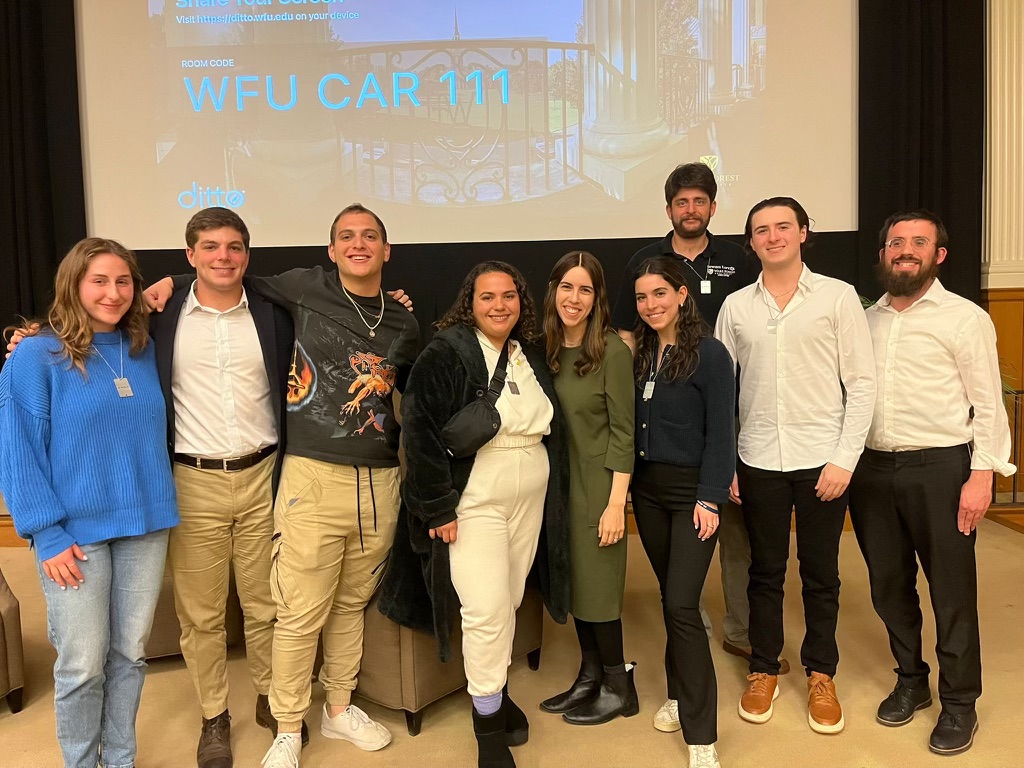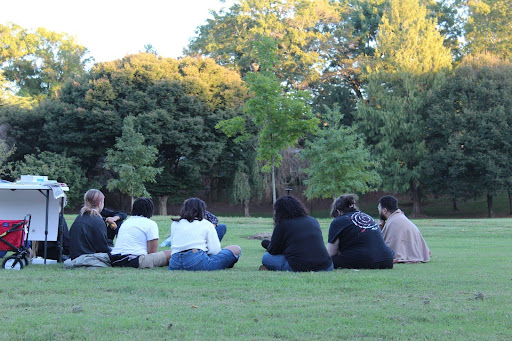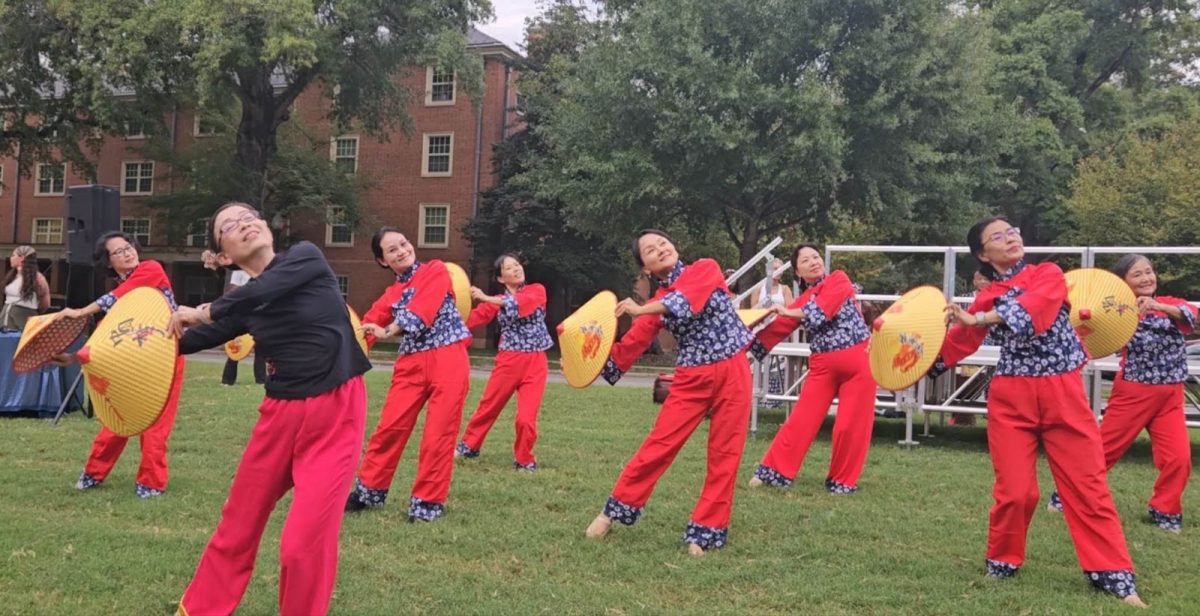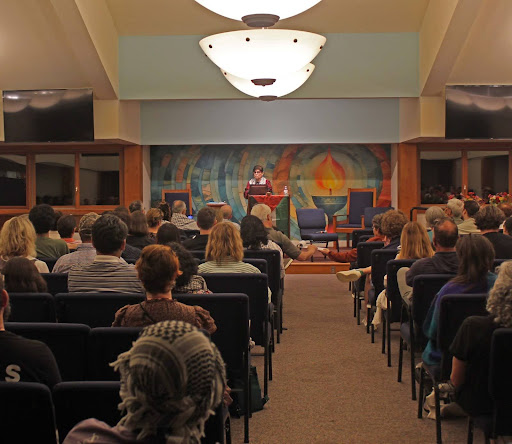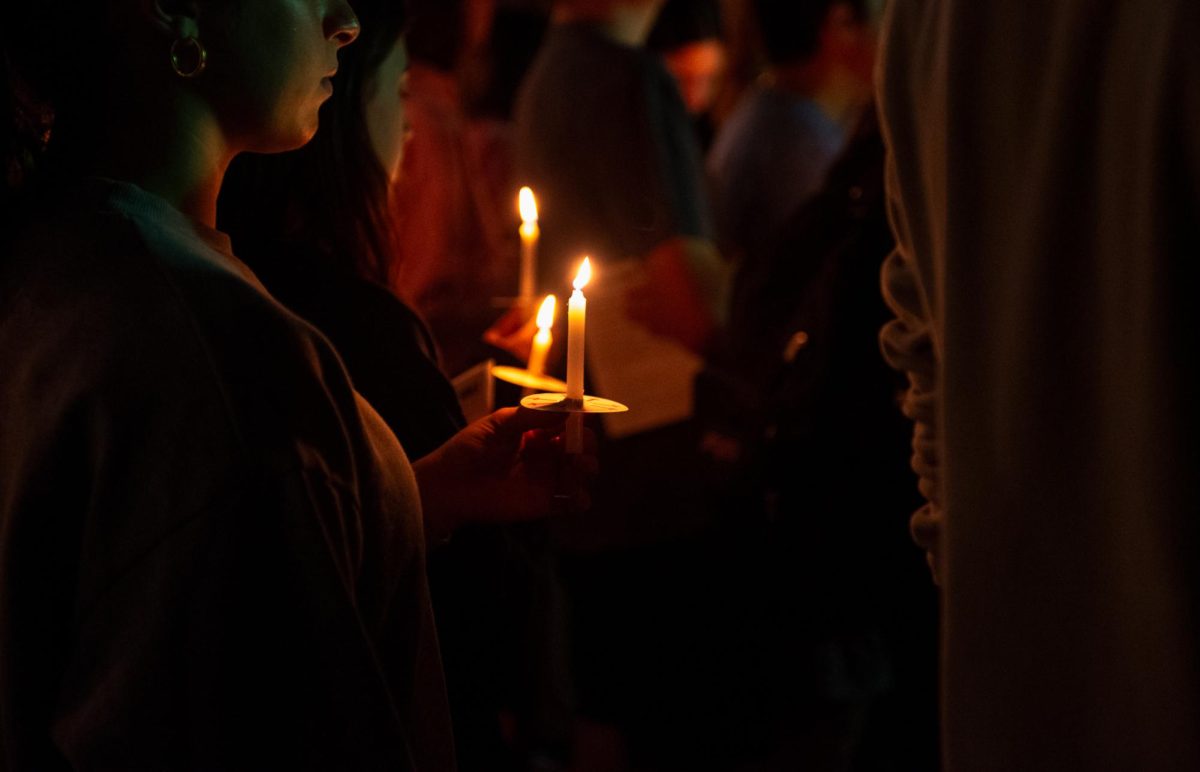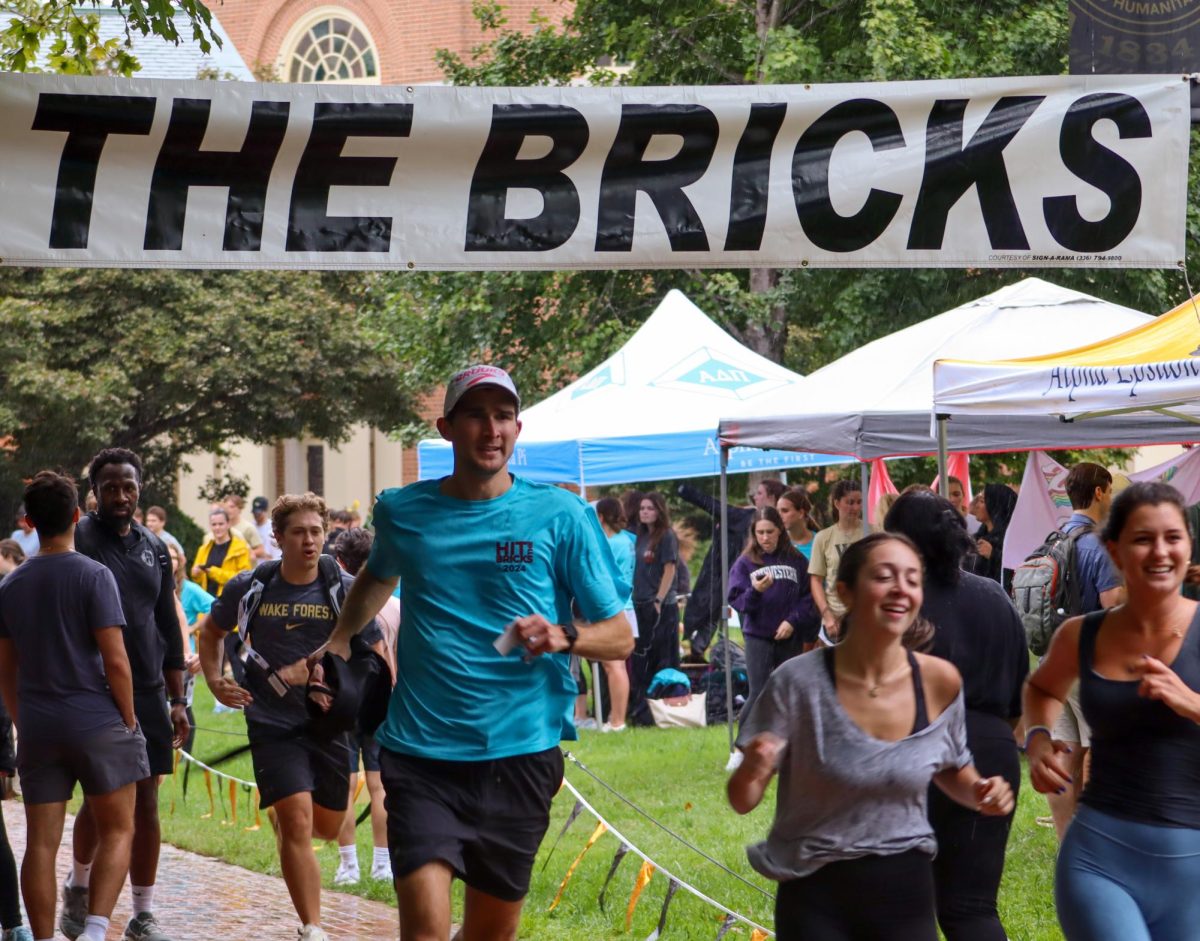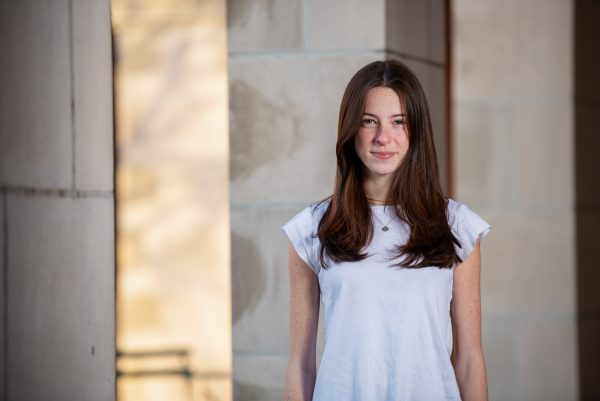On Tuesday, March 26, Wake Forest faculty, staff and students gathered in the Annenberg Hall for the Faces of October 7 event to hear Lee Sasi share her experience at the Nova Music Festival in Southern Israel on Oct. 7.
Wake Forest Hillel and Chabad hosted the event. Wake Forest’s Hillel International Israel Intern Ella Sadikman explained that hearing from Sasi is important for the broader Wake Forest community.
“In the wake of Oct. 7, it’s been tremendously hard for so many students across the nation with so many different identities, including Muslim students, Arab students and Jewish students all across the board,” Sadikman said. “For us as leaders of our Jewish organizations and communities on campus, we felt that it was really important to provide the opportunity to learn about what happened on Oct. 7 and hear the personal story of somebody who was a part of that event.”
Sasi is one of the survivors of the Palestinian militant group Hamas’ surprise attack on Oct. 7 at the music festival and Israeli towns bordering the Gaza Strip — a Palestinian territory that Israel and Egypt have blockaded for 16 years (Editor’s Note: The Old Gold & Black follows AP Style guidance, which is to refer to Hamas as a militant group). The attacks resulted in the death of roughly 1,200 people and the capture of 240 people. In response, Israel carried out air strikes and sent troops into Gaza. The Gazan Health Ministry says Israel’s offensive, precipitated by Hamas’ attack, has resulted in the death of over 30,000 people.
During the event, Sasi explained that she is originally from Los Angeles, Calif., and she traveled to Israel for over a month around the time of the attack to visit friends and family who lived there.
According to Sasi, her cousin was one of the organizers and performers at the Nova Music Festival, and Sasi extended her stay in Israel to attend. She recounted her experience at the festival the night before the attack.
“It was very magical, very special … it was a wonderful night,” Sasi said.
As the sun rose on the morning of Oct. 7, Sasi recalled looking up into the sky and seeing rockets, which she first believed to be fireworks. Following the initial rocket strikes, Sasi and some of her family members ran to their car and located a nearby bomb shelter. Sasi said that the bomb shelter built for roughly 10 people was filled with 30-40 festival goers, including herself and her uncle.
Over these seven hours, multiple Hamas militants fired into the short hallway entrance of the shelter and threw in grenades and Molotov cocktails. Sasi recalled the experience of being trapped in the small, cement bomb shelter and hiding for seven hours under the bodies of those who had been killed.
“Every shot echoed in your ear ten times more; everything was louder, more intense,” Sasi said.
Sasi shared that her uncle died during the attack and that she was one of nine people in the bomb shelter who survived. Since then, she has continuously spoken out about her experience in the media and advocates for those who have lost their lives as a result of the ongoing Israel-Hamas war.
“I’m not gonna shut up because it happened to me as an American girl on vacation … I have the right to be upset; I have the right to speak my mind,” Sasi said. “Don’t be afraid to be a Jew, don’t be afraid to show your pride.”
After Sasi recounted her story, she shared personal photos and videos taken at the festival before the attacks, inside the shelter and immediately after being rescued. Following Oct. 7 she posted one video taken inside the shelter that went viral on social media, which she made as a final goodbye to her mother, who was not at the festival. From one short video revealing the inside of the small area, she was able to assist in the identification process of missing people and identify the bodies of six people who had died in the shelter.
The event transitioned into a Q&A facilitated by Chloe Mazo, president of Chabad, and Sadikman. The two asked Sasi a series of questions such as how she has coped since Oct. 7.
“I find that speaking really helps, in moderation of course, and spending time with other survivors,” Sasi said. “I’ve noticed you heal by bonding with trauma … it’s healing to spend time with people you relate to.”
Mazo and Sadikman also asked Sasi what college students can do to continue supporting her and the community.
“Seek the truth and facts,” Sasi said. “It’s important to support the Jewish people … just support each other.”
Sadikman shared with the Old Gold & Black the process of organizing the event through the Faces of October 7 organization.
“Amit, who’s the Israel fellow, and I were planning on hosting something like this,” Sadikman said. “We wanted to bring an event like this to campus just to provide a learning opportunity for any students that wanted to participate in it. Eventually, Amit was the one who contacted the organization that allows these speakers to travel around and sponsors them speaking in different places.”
While discussing the primary purpose of hosting the event, Mazo expressed the weight of Oct. 7 and the ongoing war.
“Most people just see this as a political conflict,” Mazo said. “But to us, it’s much more than that. It’s also part of our roots. It hits close to home. Oct. 7 was a devastating event for the entire Jewish community and the greater communities.”
Freshman attendee Sadie Oreck explained the importance of listening to the voices of those affected by the attack on Oct. 7.
“Not really that many people know about the details of the event on Oct. 7,” Oreck said. “I think [Sasi’s story] was just really eye-opening to what those people went through on that day, especially to have the ability to hear someone who was actually there.”


